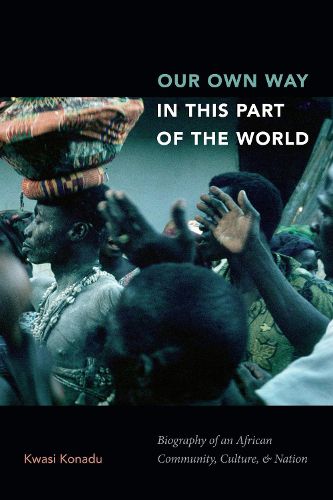Readings Newsletter
Become a Readings Member to make your shopping experience even easier.
Sign in or sign up for free!
You’re not far away from qualifying for FREE standard shipping within Australia
You’ve qualified for FREE standard shipping within Australia
The cart is loading…






Kofi DOnkO was a blacksmith and farmer, as well as an important healer, intellectual, spiritual leader, settler of disputes, and custodian of shared values for his Ghanaian community. In Our Own Way in This Part of the World Kwasi Konadu centers DOnkO’s life story and experiences in a communography of DOnkO’s community and nation from the late nineteenth century through the end of the twentieth, which were shaped by historical forces from colonial Ghana’s cocoa boom to decolonization and political and religious parochialism. Although DOnkO touched the lives of thousands of citizens and patients, neither he nor they appear in national or international archives covering the region. Yet his memory persists in his intellectual and healing legacy, and the story of his community offers a non-national, decolonized example of social organization structured around spiritual forces that serves as a powerful reminder of the importance for scholars to take their cues from the lived experiences and ideas of the people they study.
$9.00 standard shipping within Australia
FREE standard shipping within Australia for orders over $100.00
Express & International shipping calculated at checkout
Kofi DOnkO was a blacksmith and farmer, as well as an important healer, intellectual, spiritual leader, settler of disputes, and custodian of shared values for his Ghanaian community. In Our Own Way in This Part of the World Kwasi Konadu centers DOnkO’s life story and experiences in a communography of DOnkO’s community and nation from the late nineteenth century through the end of the twentieth, which were shaped by historical forces from colonial Ghana’s cocoa boom to decolonization and political and religious parochialism. Although DOnkO touched the lives of thousands of citizens and patients, neither he nor they appear in national or international archives covering the region. Yet his memory persists in his intellectual and healing legacy, and the story of his community offers a non-national, decolonized example of social organization structured around spiritual forces that serves as a powerful reminder of the importance for scholars to take their cues from the lived experiences and ideas of the people they study.